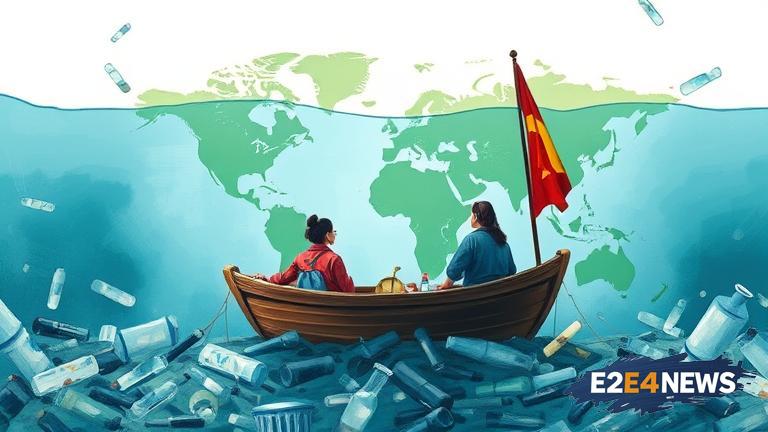The global plastic treaty talks have resumed in Geneva, Switzerland, with representatives from over 150 countries in attendance. The negotiations, which began in 2020, aim to establish a comprehensive agreement to reduce plastic pollution and promote sustainable practices worldwide. The treaty is expected to address the entire lifecycle of plastics, from production to disposal, and will likely include provisions for reducing plastic waste, increasing recycling rates, and promoting the use of biodegradable materials. The talks are being led by the United Nations Environment Programme (UNEP) and are supported by various governments, NGOs, and industry stakeholders. The global plastic pollution crisis has become a major concern in recent years, with millions of tons of plastic waste entering the world’s oceans and harming marine life. The treaty is seen as a crucial step towards addressing this issue and promoting a more circular economy. The negotiations are expected to be challenging, with different countries and stakeholders having varying interests and priorities. However, there is a growing recognition of the need for international cooperation to address the global plastic pollution crisis. The treaty is likely to include provisions for reducing plastic production, increasing recycling rates, and promoting the use of biodegradable materials. It may also include measures to reduce marine litter, protect marine ecosystems, and promote sustainable consumption patterns. The talks in Geneva are seen as a critical step towards finalizing the treaty, which is expected to be adopted by the end of 2024. The treaty will have significant implications for industries that produce and use plastics, as well as for governments and consumers around the world. It is expected to drive innovation and investment in sustainable technologies and practices, and to promote a more circular economy. The global plastic pollution crisis is a complex issue that requires a comprehensive and coordinated response. The treaty is seen as a key part of this response, and its success will depend on the ability of countries and stakeholders to work together to address the crisis. The talks in Geneva are being closely watched by environmentalists, industry leaders, and governments around the world. The outcome of the negotiations will have significant implications for the future of the planet and the health of our oceans. The treaty is expected to be a major step forward in the global effort to combat plastic pollution and promote sustainability. It will require significant changes in the way that plastics are produced, used, and disposed of, but it is seen as a necessary step towards protecting the environment and promoting a more sustainable future. The global plastic pollution crisis is a major concern for governments, businesses, and individuals around the world. The treaty is seen as a key part of the solution to this crisis, and its success will depend on the ability of countries and stakeholders to work together to address the issue. The talks in Geneva are an important step towards finalizing the treaty and promoting a more sustainable future. The treaty will have significant implications for the global economy and will require significant investment and innovation in sustainable technologies and practices. However, it is seen as a necessary step towards protecting the environment and promoting a more circular economy. The global plastic pollution crisis is a complex issue that requires a comprehensive and coordinated response. The treaty is seen as a key part of this response, and its success will depend on the ability of countries and stakeholders to work together to address the crisis. The outcome of the negotiations in Geneva will be closely watched by environmentalists, industry leaders, and governments around the world. The treaty is expected to be a major step forward in the global effort to combat plastic pollution and promote sustainability. It will require significant changes in the way that plastics are produced, used, and disposed of, but it is seen as a necessary step towards protecting the environment and promoting a more sustainable future.





